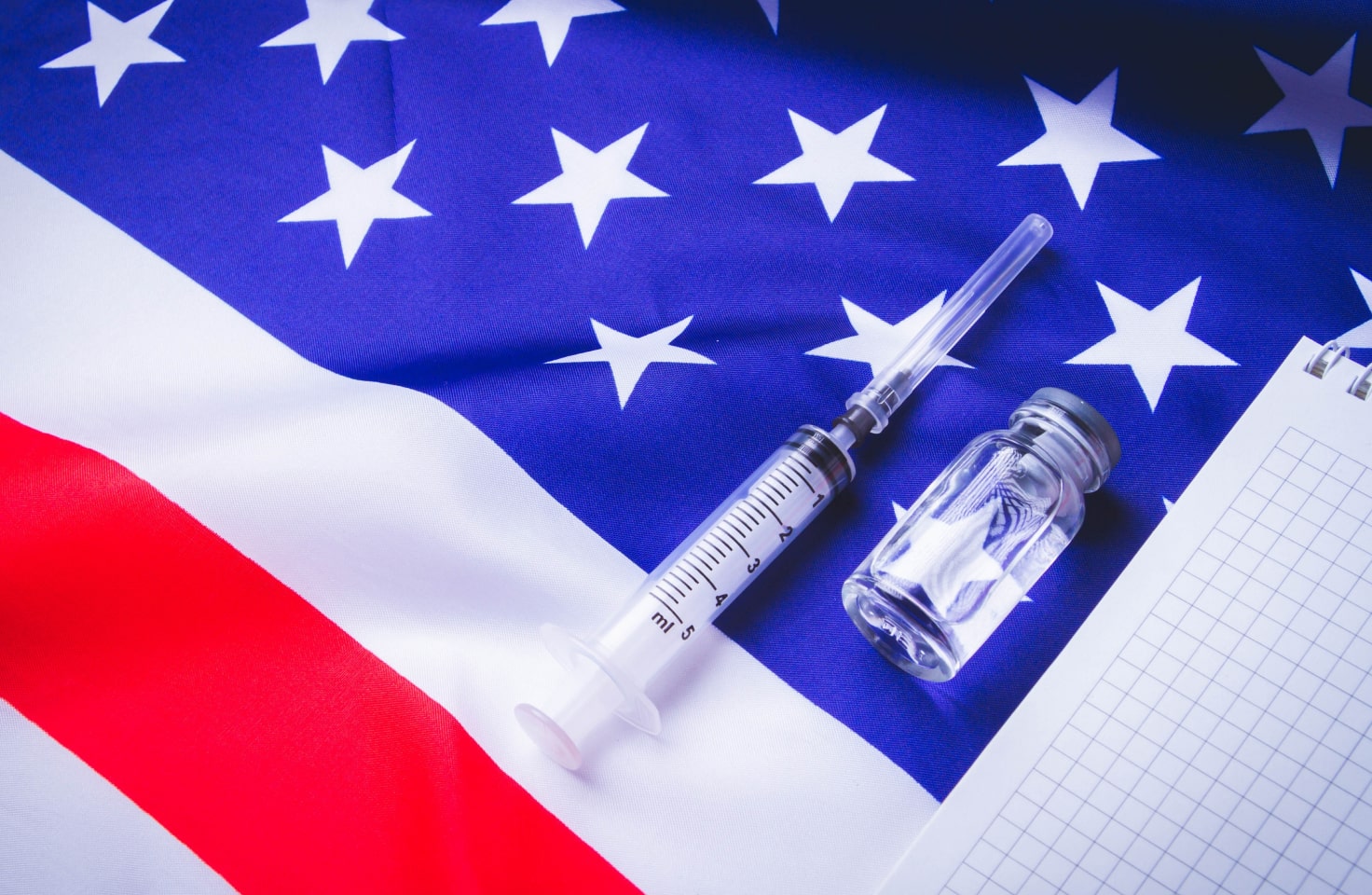T1D Guide
T1D Strong News
Personal Stories
Resources
T1D Misdiagnosis
T1D Early Detection
Research/Clinical Trials
Sick Day Guidelines and Type 1 Diabetes
Diabetes is never easy, and just when you think you’ve mastered it, something goes wrong, which is why they say diabetes isn’t for the faint of heart. You have to be stronger, smarter and more vigilant than most people in the room on any given day. Another curve ball in diabetes’ arsenal is how it affects you when you’re sick.

Sick Day Rules
If you’re newly diagnosed with type 1 diabetes (T1D), you’ve probably faced several hurdles already. Contending with blood sugar levels, learning to count carbohydrates, remembering to dose for meals, adjusting your insulin dose for exercise and getting up in the middle of the night for juice—is a lot to grasp all at once.
Plus, navigating the highs and lows of both your blood sugar and emotions can be daunting, especially on sick days. Your typical diabetes management flies out the window with the flu. In its place are some strict life-saving guidelines to help you navigate whatever dreaded malady you have.
As a T1D, if it’s your first time with an illness (and every serious illness hereafter), you should always check in with your health care team to let them know you're sick and hear their suggestions. Moreover, before calling for advice, have some contact information handy at your fingertips.
Key Information to Know:
- Your blood glucose levels and if they're going up or down
- Current ketone (urine or blood) level
- Your current illness, injury, or problem
- What other diabetes medicines you're taking
Pro Tip: Have a few COVID tests ready so you don’t have to leave home.
Also, it’s a good idea to keep your provider’s phone number and guidelines in a handy place so you don’t have to hunt for them when you’re sick. Additionally, take them with you on vacation so you don’t have to call your doctor at three in the morning.
If you are wearing a continuous glucose monitor (CGM), it's important to also check with backup home blood sugar meters.
Day Plan for Sick Days
What you can always count on with diabetes is that it is ever-changing, and what applies to one does not apply to all. Certain colds and flus put the body in stress mode which instigates the release of hormones that raise blood glucose levels, making it harder to keep blood sugars in target range.
In some cases, your illness might cause your blood sugar to rise, but for others, it might drop. Regular blood glucose testing is the only way to know how your body responds to your illness.

What are Ketones?
When you don’t have enough insulin to meet your high blood sugar levels, your body struggles to turn glucose into energy. It then starts breaking down its fat, creating ketones. Unfortunately, your body can’t tolerate the large amounts of ketones that build up in the blood. It then expels them through the urine, which is why people frequently urinate with ketones. What's more, the liver breaks down fat for fuel, producing ketones or acids. Ketones can happen to people with type 1 and type 2 diabetes but are more prevalent with type 1.
Diabetic Ketoacidosis (DKA)
When the insulin dose doesn't meet the glucose requirements, the excess ketones, which build up to dangerous levels, can possibly poison the blood, causing a condition called diabetic ketoacidosis (DKA). This life-threatening diabetes complication occurs when the body doesn't have enough insulin to allow blood sugar into cells for energy. DKA is also more common in individuals with T1D and, if left untreated, may lead to diabetic coma and possibly death.
The signs of DKA are similar to those of the flu. They include:
- Fast, deep breathing
- Dry skin and mouth
- Flushed face
- Fruity-smelling breath or urine
- Headache
- Muscle stiffness or aches
- Lethargy and brain fog
- Stomach aches, nausea or vomiting
Testing for Ketones
In addition to home blood sugar meters, you can test for ketones with urine strips or with a blood meter and test strips designed to test for ketones, both of which require a doctor’s prescription. Talk with your healthcare team about how often to test and what to do when you have ketones. The amount of ketones varies from low to medium to high to very high, and you’ll have specific instructions for each - they vary from individual to individual.
Pro Tip: It’s important to check the expiration date for ketone testing strips and glucagon emergency kits as they expire.

When to check for ketones:
- If your blood sugar is over 300 mg/dl.
- You feel nauseated, have abdominal pain or are vomiting.
- You are sick with an illness like a severe cold, flu or COVID.
- You feel tired, confused, or have a hard time breathing.
- You are extremely thirsty or have a dry mouth.
- Your breath or urine smells fruity/sweet.
It’s essential to tell your doctor when you have ketones, as sometimes hospitalization is necessary to control them and get you hydrated.
Other Sick Day Rules When You're Sick
To protect yourself on a sick day, it’s best to follow these sick day rules:
- Checking blood glucose levels about every three to four hours is a good day plan, that must be followed even at night.
- Keep up to date with diabetes medicines.
- Stay hydrated with extra liquids.
- Check for ketones every three to four hours, especially if you are vomiting or not eating much. With mild illnesses like a cold, check once or twice for ketones, and then if you are negative, you may only need to check one to two times a day. But it’s important to still check even if your high blood sugar levels are back to normal!
- Keep dosing with insulin while you’re sick.
- Drink plenty of extra liquids. If your blood sugar is high, stick to low-carb, high-electrolyte drinks. It's important to keep sports drinks in a handy place so you don't have to leave your house. If your blood sugar remains low, use drinks with carbohydrates like juice and sports drinks. Follow your doctor’s sick day guidelines for how much to drink to correct a low.
- Try to keep eating and drinking. If you’re vomiting, the last thing you want to do is eat or drink, but stay hydrated! Try sipping water, clear soft drinks without carbonation, or noncaffeinated sports drinks, tea or broth. Also, suck on ice chips or frozen popsicles.

Other Things to Consider
You should let someone know you’re sick, especially if you live alone. Likewise, ensure you have enough supplies (insulin, pump supplies, food, and drinks for low blood sugar) to last a few weeks until you’re back on your feet. Beyond diabetes provisions, it would be good to keep milk of magnesia, anti-diarrhea meds, antacids, suppositories, extra liquids, pain relievers, and a thermometer on hand. It’s also nice to have 7-up, canned soup, crackers, instant Jell-o, and pudding, old-fashioned comfort foods.
Diabetes and Steroid Use
Doctors treat various illnesses with steroids, from lupus to asthma, rheumatoid arthritis, and something as benign as eczema. Sometimes, coronavirus is treated with steroids. However, when you have diabetes, taking high doses of steroids can raise your blood sugar. This condition is called steroid-induced hyperglycemia. With this steroid treatment, your body becomes resistant to insulin, and your blood glucose may rise to unhealthy levels. Watch for symptoms and weigh the pros and cons of steroid use with your healthcare providers.
Important Tip: Always keep the prescribed glucagon emergency kit for hypoglycemia. Glucagon triggers the liver to release stored glucose, which raises blood sugar.
Staying within your target blood sugar range may be impossible when you’re sick, but you must try to balance your eating and insulin adequately and drink extra liquids to stay hydrated.
When to check-in at the ER:
- If you’re having trouble breathing.
- Your ketone levels won’t go down.
- You can’t keep liquids down for more than four hours.
- You’ve lost weight.
- Your blood sugar is lower than 60 mg/dl.
- If your condition seems to be worsening after 24 hours.
- Your vomiting or diarrhea lasts longer than six hours.
Pro Tip: If you can’t get a ride from a friend, be safe and call an ambulance or Uber!
Diabetes Self-Care
Be kind to yourself. Diabetes is wieldy, yes, but this disease is not always easy to manage. Diabetes takes no holidays; it’s sometimes grueling, but you’re doing it. It takes time and practice; all you can do is your best. You learn how your body responds to illness every time you’re sick. Protect yourself against others who are sick, wash your hands often and get your annual flu shot.
Keep in touch with your health care team. Remember to keep their contact information handy and these sick day rules!
It will get easier! Find the support you need, reach out to friends, and talk to your doctor, therapist or support group. The diabetes online community is a great resource to have. Remember, there is strength in numbers.


.webp)





.webp)
.jpg)
.jpeg)
.jpg)
.jpg)
.jpg)
.jpg)



.jpg)

.jpg)

.jpg)



.jpg)
.jpg)
.jpg)

.jpg)

.jpg)














.jpg)


.jpg)







.webp)












.webp)





















.webp)








.jpg)




.jpg)















.webp)